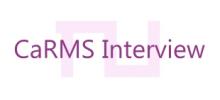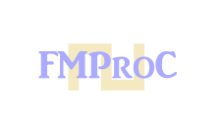What Type of an Interview and Who to Expect

For many years, the format of the CaRMS interview has been similar for all medical residency training programs, except that with some specialties opt to longer interviews and larger interview panels.

For many years, the format of the CaRMS interview has been similar for all medical residency training programs, except that with some specialties opt to longer interviews and larger interview panels.

Historically, across all business and industry domains, the interview has been used to select applicants for jobs, iwth candidates usually having been invited for interviews on the basis of an application form or CV.

For Family Medicine Professional Choices Situation Judgment test (FMProC), when the patient is competent, seeking informed consent is a relatively straightforward process, as follows:

It’s likely every family physician cares for one or more 2SLGBTQ+ patients in their practice. It’s important for family doctors to have easy access to appropriate resources to address the unique health needs of people in these communities.

You are an PGY1 working on the Emergency Department rotation. You have just seen a male patient whom you know to be your brother’s best friend. He is to be admitted pending treatment for testicular torsion. As you finish your shift that evening you bump into your brother.

One important area assessed in the Family Medicine Professional Choices FMProC/CProMF (Choix professionnels en Médecine de famille) is adaptability and resilience. Family Medicine PGY1s are know to work under pressure while in hospital or in clinic settings.

One main domain that Family Medicine Professional Choices FMProC/CProMF (Choix professionnels en Médecine de famille) regularly assesses in a Family Medicine PGY1 is their commitment to professionalism.

We take further our discussion about Family Medicine Professional Choices FMProC/CProMF (Choix professionnels en Médecine de famille) to an area which is quite common to encounter in the daily life of a FM PGY1, communication with patients and their families.

Team work is a big subject, and working in teams may help achieve superior healthcare to patients, however, teamwork comes with a price tag: you have to adjust your person to fit in. That is a lot for fresh graduates who used to finish most assignments and complete the studies by their-selves.